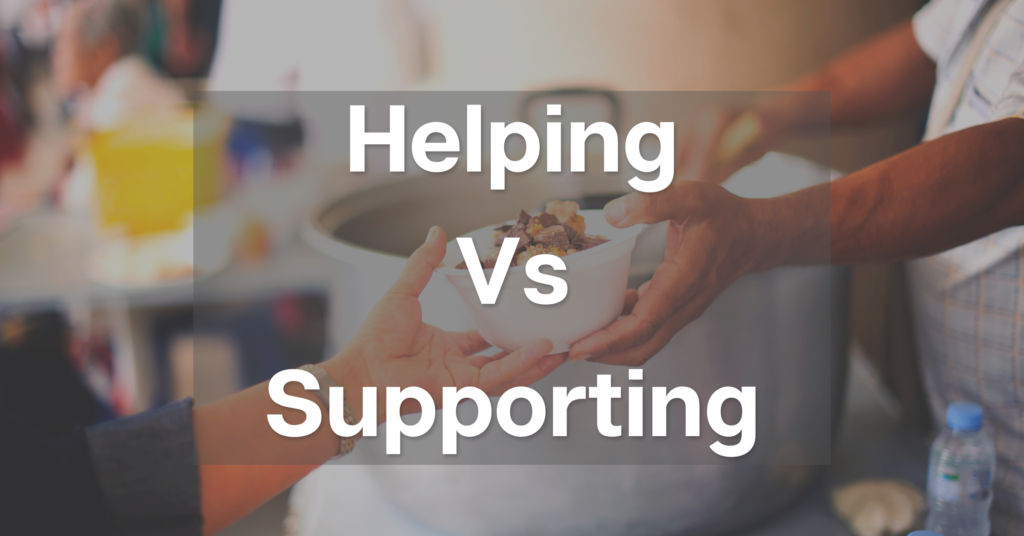We all know the value of being there for someone else. Whether it’s a friend in need or a stranger in a difficult situation, lending a helping hand can make all the difference.
But what does it really mean to help someone, and what’s the difference between helping and supporting someone?

Meaning of Helping someone
Most of us have a good understanding of what it means to help someone. Help is generally defined as assisting someone in need.
The dictionary definition of Help is “make it easier or possible for (someone) to do something by offering one’s services or resources.”
We often think of Help as physical assistance, like carrying groceries for an elderly neighbor or helping a friend move to a new apartment. But Help can also come in the form of emotional aid, like being a listening ear for a friend going through a tough time.
Meaning of Supporting someone
Support, on the other hand, is often thought of as providing encouragement or moral reinforcement.
The dictionary definition of Support is “a source of comfort or encouragement.”
When we support someone, we’re cheering them on from the sidelines and helping them to believe in themselves. This might look like sending an encouraging text message to a friend before their big presentation or being a shoulder to cry on after a difficult breakup.
What’s the difference between helping someone and supporting them?
The main difference between helping and supporting someone is that Help is typically more tangible, while Support is more intangible.
When we help someone, we usually do something specific to assist them, like carrying their groceries or helping them move. When we support someone, we’re more likely to offer encouragement or emotional stability.
Another thing to keep in mind is that Help is usually done with the intent of getting something back in the future. For example, you help out a neighbor when they’re having a tough time expecting they’ll do the same for you one day. With Support, you do it because you genuinely want the other person to make progress — without any strings attached.
That being said, there’s often a lot of overlap between helping and supporting someone. For example, if you help your friend move, you’re also offering them emotional Support. And if you provide emotional Support to a friend in need, you’re also helping them to cope with their situation.
How can we apply this difference?
Now that we understand the difference between helping and supporting someone let’s talk about how we can apply this difference in our everyday lives.
In what situations should we help, and in what conditions should we support the other person?
There’s no easy answer to this question, as it will vary depending on the situation and the person involved. However, a good rule of thumb is to offer Help when it’s needed and to offer Support when it’s desired.
For example, if you see someone struggling to carry a heavy load, you might offer to help them carry it. But if you see someone who’s upset and needs to talk, you might offer your Support by listening and showing empathy.
Final Thoughts
Offering Help or Support can be beneficial to both parties. When we help someone, we usually provide them with a tangible form of assistance they need. And when we support someone, we often provide them with the emotional stability and encouragement they need.
I hope the information you learned from this article will help you make a better decision the next time you have to decide between helping or supporting someone.



